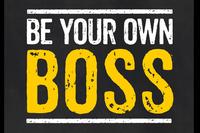Not doing well in interviews? It's not uncommon to make a few mistakes. There's plenty of speculation about how to give a good interview, but there are a few definite mishaps that will seriously impair, if not ruin, your chances at getting hired. Inspired by a list from BusinessTech, here are 10 common interview mishaps.
1. Not Researching the Industry, Company or Job Opening.
Remember the old adage, "No plan survives contact with the enemy." Why is there so much research and preparation in the military? Because those are your strongest tools to enter a situation with the ability to handle anything that happens.
So why wouldn't you research and plan for your interview? If you don't, you won't interview well. It's not just about answering questions properly, it's about understanding what the company is looking for, how it fits their needs and how it relates to the industry as a whole. This basic information will inform the answers you provide, and even how you relate to the interviewer.
2. Overselling Yourself.
There's a difference between confidence and arrogance; find it. This doesn't mean censor yourself, but it does mean that you shouldn't pop off on interviewers about how you're a gift to mankind. If you're professional, efficient, creative, have leadership skills or whatever, great. Make sure your interviewer knows all the highlights about your professional self, but they shouldn't be left with the impression that you think you're a big deal.
3. Never Asking Questions.
People sometimes falter during interviews because of what they don't say, or in this case what they don't ask. Even if you don't naturally have any questions for them, think of something you can ask toward the end of the interview. If there's room in the discussion, use something the interviewer has said as a jumping-off point to ask a question. There's no real formula to follow; it's just a matter of displaying curiosity as well as job-appropriate knowledge. Asking good questions can help throw the door wide open.
4. Behaving Disinterested.
If you aren't interested in the job, why should the hiring manager be interested in you? Your body language says a lot. Make eye contact, sit up straight and stay engaged throughout the entire interview. You might want the job with all your heart, but if you don't convey that in what you say and how you behave, the interviewer won't have a clue.
5. Pretending to Have Answers.
If you subscribe to the mantra, "fake it till you make it," you can forget about passing most interviews. If you're being interviewed, the individual in the other seat has most of the cards. They know what they want, they know what they don't want, and they're the ones who ultimately determine whether you were successful. With all that in mind, pretending to know something you don't is a huge risk, and the rewards aren't worth it.
Most likely, a fabricated answer will be sniffed out immediately. Not only will you not get the job, but your professional reputation will be on the line. You've ruined any chances you have or may have with that company, and a negative reputation is hard to shake.
6. Fabricating Achievements.
We won't comment on the potential rewards of embellishing the truth, but we will say that outright lying about what you've achieved will get you the boot pretty fast. The interviewer might not be able to sniff out those lies right away, but if they can't verify them over time, you're in trouble.
Consider the consequences of what you're saying. Can anyone corroborate your claims? Is there any evidence that you've done what you say you have? Can you talk about these achievements in real and in-depth terms? If the answer is no to any one of those, you have a problem.
7. Inappropriate Attire.
When you served, what happened to people whose uniforms didn't fall within regulations? You came from a profession where failing to wear a hat outdoors, or take one off indoors, could get you in trouble.
So why lose that sense of professionalism in the civilian world? Civilian attire guidelines are far looser than anything you'll find in the military, but never swing too far in the opposite direction and look sloppy when you're trying to impress people.
8. Losing Focus When Speaking.
Job interviews aren't meant to be a soul-seeking journey into the ether where every aspect of your life story is depicted and unpacked. You're there to tell someone that you're a professional who can get the job done, and prove why that's true. Keep your responses tailored, not curt. You don't want to sound standoffish, but you should never ramble.
9. Unable to Explain What They Contribute.
Interviews are extremely stressful for a few reasons. One of them is that you're trying to prove your worth to another person. You're literally putting your value as a professional on the line, and you might get shot down. So don't miss the opportunity to demonstrate that your prospective employer will benefit from having you on the team. You're a professional, you will help them succeed and you'll bolster their efforts. Don't let them think otherwise.
10. Complaining About Past Employers.
If you were still serving and put in charge of subordinates who bad-mouthed their previous NCOs or officers, how would you feel? Would you look forward to their future criticisms, or would you shudder at the thought of managing their bad attitudes?
Trash talk about old bosses never makes you look good, no matter how well-intentioned it is. Let go of the past and stow the complaints. It's OK to use previous struggles as examples of how you persevered or flourished in an adverse situation, but only do so in neutral terms and without pointing direct blame at anyone.
Want to Know More About the Military?
Be sure to get the latest news about the U.S. military, as well as critical info about how to join and all the benefits of service. Subscribe to Military.com and receive customized updates delivered straight to your inbox.











